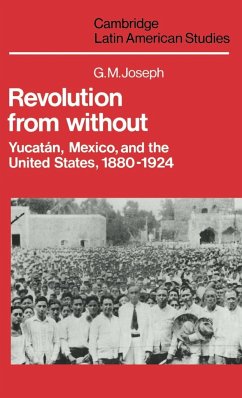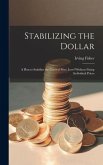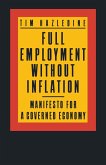By focusing on Yucatan, this history of the Mexican Revolution not only advances the understanding of the Revolution in that region but also contributes to the understanding of the Revolution as a whole. If historians agree on anything in the highly charged field of Mexican revolutionary history, it is that the Revolution can no longer be viewed as a monolithic event. It was a series of regional phenomena, each governed by a set of local social, economic, political, geographical, and cultural factors. Thus far, historians have concentrated on the victorious caudilloled armies of the north, which was the birthplace of the Revolution, or on the popular social movements of central Mexico, most notably Zapatismo, the agrarian movements of Veracruz and Michoacan, and the more widespread Cristero rebellion. In bypassing southeastern Mexico, modern writers seem to have concurred with the assessment of some contemporary observers that, in the remote Yucatan peninsula, the Revolution followed a strange and exceptional course. Professor Joseph shows that in certain respects, Yucatan's revolutionary experience was indeed unique. It was later to arrive, less violent, and probably more radical in its first decade than it was elsewhere in the republic. Although Yucatan was not important in the genesis and early development of the Revolution, it became a celebrated social laboratory, first for bourgeois reform under Constitutionalist general Salvador Alvarado, and later for 'socialist' experiment under civilian governor Felipe Carrillo Puerto. Professor Joseph argues that the Yucatecan case has important implications for understanding such central problems as export dependency and regional development, agrarian reform, mass mobilization and caciquismo (bossism), and the relationship between revolutionary ideology and practice.
Table of contents:
List of tables and figures; Preface; Acknowledgments; Prologue: Yucatán receives a revolution; Part I. The Parameters of Revolution: 1. Plant and plantation: the development of a monocrop economy; 2. The henequen boom: oligarchy and informal empire, 1880-1915; 3. The revolutionary equation within Yucatán: the problem of mobilization; Part II. The Bourgeois Revolution, 1915-1918: 4. Salvador Alvarado and bourgeois revolution from without; 5. The theory and practice of bourgeois reform: land and the export economy; 6. The breakdown of bourgeois revolution, 1918-1920; Part III. The Socialist Revolution, 1920-1923: 7. Felipe Carrillo Puerto and the rise of Yucatecan socialism; 8. The ideology and praxis of a socialist revolution: agrarian reform and the henequen industry; 9. The failure of revolution from within, 1923-1924; Epilogue; Appendix; Abbreviations used in notes; Notes; Select bibliography; Index.
By focusing on Yucatan, this history of the Mexican Revolution not only advances the understanding of the Revolution in that region but also contributes to the understanding of the Revolution as a whole.
A history of the Mexican Revolution through focusing on Yucatan.
Hinweis: Dieser Artikel kann nur an eine deutsche Lieferadresse ausgeliefert werden.
Table of contents:
List of tables and figures; Preface; Acknowledgments; Prologue: Yucatán receives a revolution; Part I. The Parameters of Revolution: 1. Plant and plantation: the development of a monocrop economy; 2. The henequen boom: oligarchy and informal empire, 1880-1915; 3. The revolutionary equation within Yucatán: the problem of mobilization; Part II. The Bourgeois Revolution, 1915-1918: 4. Salvador Alvarado and bourgeois revolution from without; 5. The theory and practice of bourgeois reform: land and the export economy; 6. The breakdown of bourgeois revolution, 1918-1920; Part III. The Socialist Revolution, 1920-1923: 7. Felipe Carrillo Puerto and the rise of Yucatecan socialism; 8. The ideology and praxis of a socialist revolution: agrarian reform and the henequen industry; 9. The failure of revolution from within, 1923-1924; Epilogue; Appendix; Abbreviations used in notes; Notes; Select bibliography; Index.
By focusing on Yucatan, this history of the Mexican Revolution not only advances the understanding of the Revolution in that region but also contributes to the understanding of the Revolution as a whole.
A history of the Mexican Revolution through focusing on Yucatan.
Hinweis: Dieser Artikel kann nur an eine deutsche Lieferadresse ausgeliefert werden.








